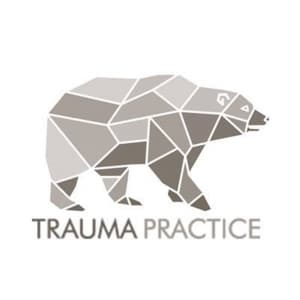Miscellaneous
Ahh, deep restorative sleep! What relief! We all know how much better we feel after a good night's sleep. But what happens when we are woken up throughout the night by disturbing nightmares and unsettling dreams? Are we prepared with strategies for getting back to sleep or for addressing upsetting dream content when it surfaces? What about repetitive nightmares that keep coming back? How are we to deal with them? Well, today's show looks at sleep interventions, as well as dream and nightmare strategies. I love this topic as it gives you the skills for looking closely at what surfaces through the dream content and what makes it so interesting and meaningful in your own healing journey. Whether it is tigers chasing you or workplace incidents, repeating the content is often symbolic or representative of what needs addressing, rather than reflective of the actual problems in your life. For example, if in your life you are not getting along with a specific friend ... your dream content might show you in a boat floating away from shore into murky water and away from a house that represents your connections and safety. You can see an array of animals growling on the shoreline as well as one cartoon character happily waving at you from one of the windows of the house. You don't need to live close to water or even in a house in order for the dream to have meaning for you or to relate to the argument you are having with your friend. Nothing needs to be an exact replica if you look at the content through the lens of "everything is an aspect of you". In the example above, you are all elements. You are the murky water, the house you are leaving behind, you are the boat and the feelings you have being on the boat. You are all characters that you see. Given time and introspection, you can begin to notice how each element relates to you and your life themes and events. Treatment for nightmares includes medications such as Prazosin, CBT therapy such as Image Rehearsal Therapy (or changing the ending) and dream journaling. Deep breathing, relaxation practices and embedding the positive rather than fighting to get to sleep. Other approaches include: Sleep Hygiene Dream Journaling using a light pen Decoding Bad Dreams using Imagery Rehearsal Therapy Making Peace with your Sleep – do not fight to get back to sleep ... instead rest and breathe deeply Improve sleep with deep relaxation and embedding positive messages Using Guided Body Scan and Progressive Body Relaxation We also recognize that having a trauma history makes a person much more susceptible to bad dreams/nightmares. This can be thematic such as dreams that reflect a certain type of experience (i.e., loss of an important person, violence against you or those you love, etc). These thematic nightmares do not necessarily present an exact replica of what occurred in your life but can have features representative of a type of loss or trauma that still needs attention or healing in your life. Research indicates that trauma has been increasingly identified as a potential precursor to clinical insomnia (Sinha, 2016). Sleep quality disruption is one of many ways that trauma can have a significant and prolonged impact on health and well-being, and this is largely because of the ways in which trauma can sensitize the central nervous system to become more hyper-aroused. However, there are ways to mitigate this, improve sleep quality, and regulate the body's sleeping patterns again after trauma. An excellent article by Havens et al. (2019) outlines this research, and has informed some of the exercise guidelines below. Links & Resources: Sleep Hygiene: https://youtu.be/YvqeWcPwd2o?t=59 Tame & Decode Bad Dreams: https://youtu.be/Oi72TXnkEy4?t=17 Make Peace with Your Sleep: https://youtu.be/5HjzyLMsygM?t=38 Improve sleep by relaxing deeply and embedding positive messages: https://youtu.be/ZQmfCEtzvEE Sleep relaxation (the Honest Guys): https://youtu.be/8TDcGYmEgyM Guided Body-Scan Meditation for Sleep: https://youtu.be/8TDcGYmEgyM Imagery Rehearsal Therapy (IRT): https://www.verywellmind.com/imagery-rehearsal-therapy-2797304 Reduce Nightmare Frequency with IRT: https://youtu.be/CLsmRs6RXYM

